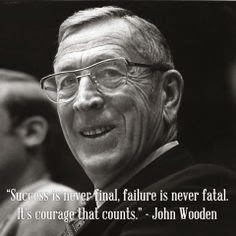
In two days, the 2012 Summer Olympics will begin, and most sports fans will turn their attention to London for two weeks.
But it is worth remembering that 20 years ago today, America's professional "Dream Team" basketball squad made its debut at the Summer Olympics in Barcelona.
The 1992 Summer Games are remembered for many reasons:
- They were the last Summer Olympics to be held in the same year as the Winter Olympics.
- For the first time in more than 30 years, South Africa was allowed to compete.
- For the first time in nearly 30 years, Germany competed as a united country.
- The countries that had formed the Soviet Union until the year before were allowed to compete as a Unified Team.
Under that banner, they won more medals than any other country.
The 1988 Olympic squad had been quite talented, too, but all the players were college players, and they finished third. Hopes were high in America in 1992, higher than they had been in, perhaps, 20 years — ever since the United States lost a controversial gold–medal game to the Soviet Union at the 1972 Games and refused to accept the silver medal.
For 20 years, that loss to the Soviets had gnawed at the American psyche. Prior to that day, the United States had not lost an Olympic basketball game since the sport was added to Olympic competition in 1936. The Americans had practically sailed through their first eight games, but they found themselves trailing the Russians at halftime and struggling in the final minutes.
With three seconds showing on the clock, the Americans were fouled and a player was awarded two free throws. He made the first and was in the process of shooting the second when the buzzer sounded; the Soviets had called a timeout. The player continued with his shot and made it, giving the Americans a one–point lead.
Under the rules that existed at the time, the ball was live, but play was stopped when the Soviets insisted they had called a timeout. There was some commotion at the scorers' table, play resumed and, eventually, the Soviets scored and won the game. The timeout and the ensuing sequence of events was a sore spot that never completely healed.
Even when the U.S. hockey team beat the mighty Soviet team in the 1980 Winter Games, the loss by the 1972 basketball team lingered and festered.
The Dream Team avenged the 1972 defeat and the disappointing 1988 finish in a big way — they went undefeated at Barcelona, winning every game by an average margin of 44 points. The Americans beat the Croatians twice, including in the gold–medal game, and Croatia did manage to hold the United States to its two lowest winning margins — 32 and 33 points.
The Americans' most lopsided victory came in the opener, a 116–48 win over Angola. The United States never scored fewer than 103 points, and its opposition never scored more than 85. And neither happened in the same game.
The Dream Team was kind of anticlimactic, though.
I mean, with all that talent, all that star power, it was practically regarded as a foregone conclusion that the U.S. basketball team would win the gold medal — and that none of the games would be close.
It all went as expected, too. There was no real suspense, no real drama. Only a diehard basketball fan could probably tell you who the Americans defeated in the gold–medal game.
But, for a true sports enthusiast, the absence of even a hint of uncertainty about the eventual outcomes, rendered the games mildly interesting. The only real issues to be settled were which player(s) would lead the team in scoring and rebounds.
Few championship games in any sport, amateur or professional, have been as lopsided as the U.S.'s game with Croatia. The U.S. did trail Croatia — briefly — in the first half, but that was about as much suspense as there was in any of the Dream Team's games.
When it was over, Sports Illustrated suggested that the Dream Team had been the most dominant team ever assembled in any sport.
I doubt that anyone argued the point.







No comments:
Post a Comment